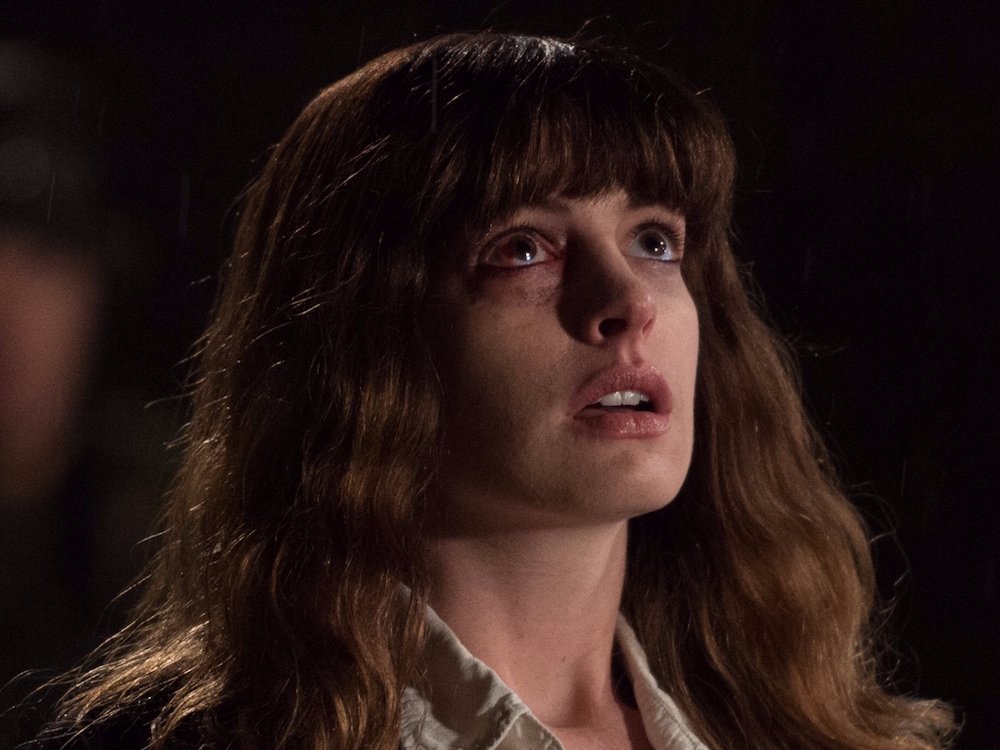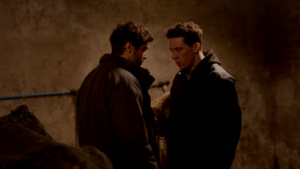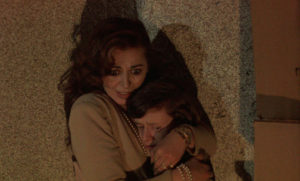
In an era where think piece after think piece berates superhero films for not addressing the responsibility of heroes to avoid mass scale destruction and take personal responsibility, a few have attempted to right this wrong. Films like Captain America: Civil War and Batman vs Superman both tackle this and fail, both to varying degree. But Colossal—a movie that is decidedly not about superheroes, but an alcoholic woman who returns to her hometown after hitting rock bottom—understands that personal responsibility matters.
Limiting Colossal to that description would be a disservice to Nacho Vigalondo’s ambitious work of art; a film that blends the typical Sundance dramedy with, well, a kaiju film. Gloria (Anne Hathaway) discovers that her drunken mornings in the park mirror kaiju attacks in Seoul, South Korea. The metaphor is obvious—she’s a monster when she’s drunk—but there’s more to it than that: anytime she, or her childhood friend Oscar (Jason Sudeikis) who enables her alcoholism, steps into this park sandbox, this monster manifests itself in Seoul, whether drunk or sober.
Revealing more of the plot would be criminal, as Vigalondo is not one to shy away from twists and this work is no exception to that. But Colossal has a surprising balance of heft and humor. As much as its marketing, and the script itself, offers its share of silliness and laughs, this is a dark film about a number of things. It’s not just the destructive nature of addiction, but the writing offers an off-beat look at the way self-loathing and problematic pasts impact people differently. And while the magical realism of the film serves as a perfect conduit for those things, the human drama also deftly explores the perils of toxic masculinity and male entitlement.
In this aspect, performances are everything to the film; the supporting male as much as the woman who is our protagonist and moral ground (as amoral as she might seem at first). Hathaway has delivered “fuck-up” before and she does so wonderfully again, the film’s last shot and her pitch-perfect expression solidifying every bit of character shift that came before. Sudeikis’ “nice guy” shtick finally gets a workout here with something that challenges him to move outside of that box while the rest of the men—Dan Stevens and Austin Stowell—fall into the boyfriend and fling roles that women are typically relegated to. The always great Tim Blake Nelson’s character, dealing with his own subplot about addiction, unfortunately gets dropped for the sake of focusing on the stars.
In its presentation, Colossal is sleeker than anything Vigalondo’s done in the past, but as loaded in ambition as the rest of his work. The special effects are goofy and unpolished, but they feel sincere when placed alongside blockbusters that aim for realism and grand-scale travesty. If the kaiju in the film look like big toys, it’s because they might as well be, and that’s okay. There’s no big action set piece necessary here because Colossal isn’t an action movie or a movie about kaiju destroying Seoul masquerading as something else (like Gareth Edwards’ Godzilla was). It’s a smart, weird little movie about how humans are willing to push responsibility aside for personal gain until faced with the cold, hard realization of the damage it does, and even then, how some people don’t give a fuck.
—
Directed by Nacho Vigalondo; written by Nacho Vigalondo; starring Anne Hathaway, Jason Sudeikis, Dan Stevens, Tim Blake Nelson & Austin Stowell; 110 minutes.
Colossal is currently experiencing a limited release. In Miami, it hits theaters on April 21st.



 Derek
Derek
 Isabelle
Isabelle